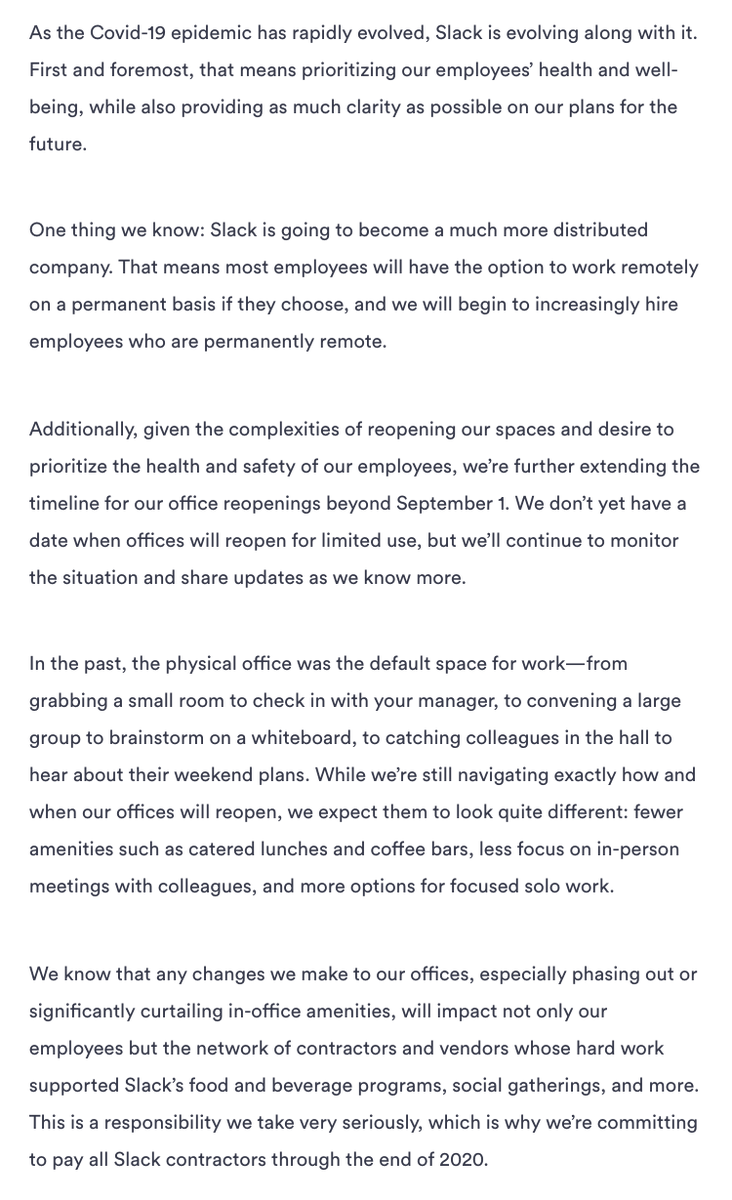
Slack is giving its employees the option to make remote work the new normal in the wake of the coronavirus pandemic, according to a blog post by the company's senior vice president of people Robby Kwok.
"Slack is going to become a much more distributed company," Kwok said. "That means most employees will have the option to work remotely on a permanent basis if they choose, and we will begin to increasingly hire employees who are permanently remote."
Kwok added that the company would extend its work from home policy indefinitely beyond Sept. 1 due to the "complexities of reopening our spaces and desire to prioritize the health and safety of our employees."
"We don't yet have a date when offices will reopen for limited use, but we'll continue to monitor the situation and share updates as we know more," Kwok said.
Slack is the latest company to offer employees the option to work from home indefinitely, following similar announcements by Facebook and Twitter last month.
Kwok noted that when Slack's offices eventually do reopen, there will be fewer amenities, less focus on in-person meetings, and more options for employees to pursue "solo work." As a result, the company will also pay all of its contractors through the end of the year.
A CreditCards.com survey conducted in May found that 35 percent of Americans working from home would prefer not returning to the office even after state and local restrictions lift across the country and despite Americans seeing their monthly expenses increase by an average of $108."Although there are many things we can't know about what work will look like in the future, the Slack team is working tirelessly to understand our options, determine what choices we need to make, and understand how best to support our employees and our company over the long term," Kwok added. "We are closely monitoring the situation globally and will provide further updates as new information is available."
According to the survey, the biggest increase in expenses was for groceries and utilities, which went up an average of $182 and $121 per month respectively. The lowest increases were for childcare at an average of $34 per month, gas or public transportation at an average of $33 per month, restaurants at $27 per month, and clothing or dry cleaning at $4 per month.


